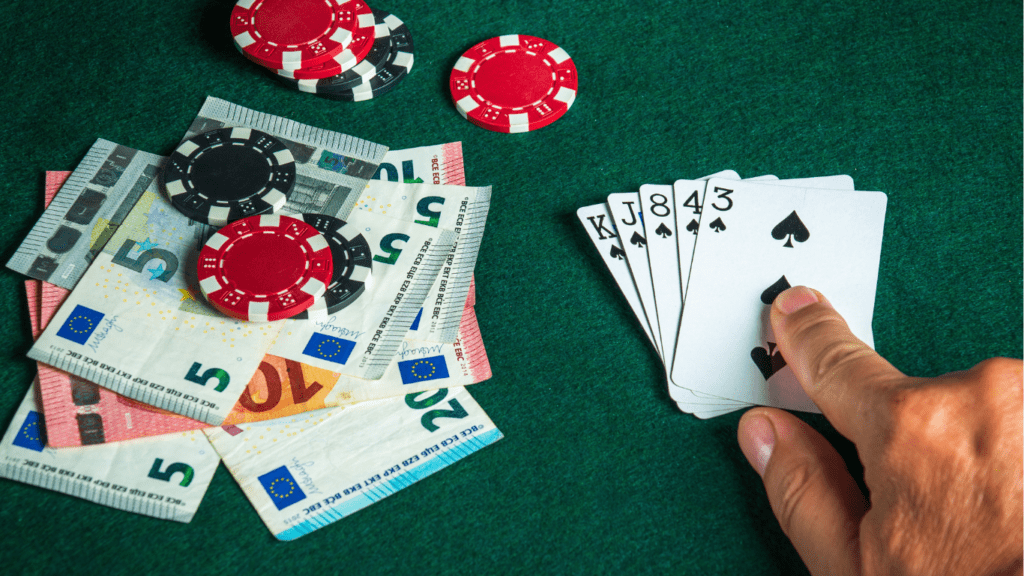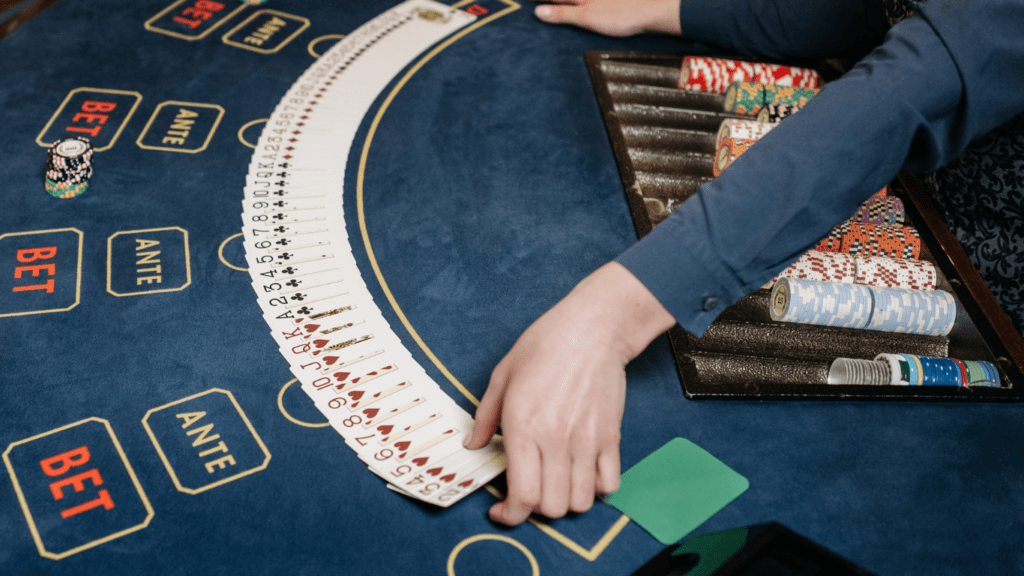Understanding Responsible Gambling
Responsible gambling ensures that this activity remains enjoyable and within your control. It’s crucial to establish limits on time and money spent, enabling you to prevent gambling from affecting your daily responsibilities. Set realistic budgets, and avoid exceeding them to maintain financial balance.
Awareness of personal motivations helps you understand why you gamble, whether it’s for entertainment, social interaction, or other reasons. Recognizing these motives can help identify when gambling becomes problematic. Stay aware of time spent on gambling platforms by monitoring usage patterns to avoid potential pitfalls.
Seek out resources and support if gambling starts impacting your life negatively. Numerous organizations provide assistance and advice tailored to help regain control. Utilizing these resources equips you with tools to manage gambling habits effectively.
Recognizing the Signs of Problem Gambling
Identifying problematic gambling behaviors early ensures responsible gambling. Frequent feelings of guilt or anxiety after sessions can indicate issues. Struggling to stop gambling despite intentions highlights a loss of control.
Observing a shift in priorities, such as neglect of work or relationships, may signal gambling problems. If financial problems arise, with money spent on gambling instead of essential expenses, this could point to compulsive behavior.
Tracking moods can also reveal signs. If gambling becomes an emotional escape or leads to irritability when unable to gamble, this may suggest dependency. Monitoring these behaviors helps address issues before they escalate, promoting healthier gambling habits.
Tips for Maintaining Control While Gambling

Maintaining control while gambling ensures the activity remains enjoyable and responsible. Implementing specific strategies can help keep gambling habits in check.
- Set a Budget and Stick to It
Deciding on a spending limit helps manage gambling expenditures. I allocate a specific amount of money, treating it as the cost of entertainment rather than an investment. By setting a budget before I begin, I avoid the temptation to spend more than planned.
- Take Regular Breaks
Frequent pauses during gambling sessions prevent fatigue and impulsive decisions. I make it a point to take breaks every hour to clear my mind and assess my actions. These intermissions offer an opportunity to reflect on my gambling session and adjust if necessary.
- Avoid Chasing Losses
Accepting losses is crucial for maintaining control. I recognize that attempting to win back lost money often leads to more significant losses. By accepting losses as part of the gambling experience, I maintain composure and prevent making hasty decisions that could worsen the situation.
- Keep a Time Limit
Designating a specific time frame for gambling sessions maintains control over my schedule. I decide in advance how much time to dedicate to gambling, ensuring it doesn’t interfere with daily obligations. This disciplined approach enhances the enjoyment of the game without time pressure.
- Balance Gambling with Other Activities
A diversified lifestyle helps me keep gambling in perspective. I engage in various hobbies and social activities outside of gambling. This balance prevents gambling from becoming too substantial in my life and ensures my well-being remains intact.
Tools and Resources for Responsible Gambling
Maintaining control while gambling benefits greatly from leveraging available tools and resources. These options empower individuals to gamble responsibly and enjoy the experience without adverse effects.
Self-Exclusion Programs
Self-exclusion programs allow gamblers to limit their access to casinos or betting sites. By voluntarily agreeing to a self-ban, individuals can prevent themselves from entering gambling establishments or accessing online accounts. This tool is particularly effective for those recognizing the need for a systematic break. The National Council on Problem Gambling (NCPG) offers resources to guide people through the self-exclusion process, ensuring they can regain control over their gambling habits.
Budgeting Tools and Apps
Budgeting tools and apps help individuals track and manage their gambling expenses. By setting financial limits and monitoring spending, gamblers can stick to a predefined budget. Apps like:
- GambleAware
- BetBlocker
provide features to control expenditures and avoid overspending. These tools also offer alerts when nearing limit thresholds, helping prevent impulsive betting. A practical approach to budgeting contributes to a sustainable gambling routine and promotes financial security.
The Role of Support Systems
Relying on support systems enhances control over gambling habits. They provide encouragement and guidance to navigate challenges.
Friends and Family
Friends and family offer understanding and accountability. They help set boundaries, ensuring gambling activities remain healthy. Open discussions about gambling intentions foster trust and transparency. If gambling becomes excessive, loved ones can offer crucial support or intervention. Their perspective helps recognize behaviors that might otherwise go unnoticed.
Professional Help and Support Groups
Professional help provides structured guidance. Therapists and counselors specialize in gambling-related issues, offering customized strategies for maintaining control. Support groups, such as Gamblers Anonymous, create shared spaces for experiences and support. These groups reduce feelings of isolation by connecting individuals with similar challenges. Such community engagement forms a vital network, making responsible gambling more achievable.



 Lorenathal Wesley – Cryptocurrency & Ethics Specialist
Lorenathal Wesley serves as the site’s Cryptocurrency & Ethics Specialist, bringing a unique perspective on how blockchain and digital currencies are transforming the casino landscape. With a keen eye on industry trends, Lorenathal examines how cryptocurrency is changing payment methods, enhancing transparency, and increasing security for online gamblers. She also leads discussions on gambling ethics, exploring critical topics like fairness, accountability, and social responsibility in the gaming world. Lorenathal’s insights guide readers through the evolving landscape of crypto-casinos, making complex topics accessible and relevant to players interested in these emerging technologies.
Lorenathal Wesley – Cryptocurrency & Ethics Specialist
Lorenathal Wesley serves as the site’s Cryptocurrency & Ethics Specialist, bringing a unique perspective on how blockchain and digital currencies are transforming the casino landscape. With a keen eye on industry trends, Lorenathal examines how cryptocurrency is changing payment methods, enhancing transparency, and increasing security for online gamblers. She also leads discussions on gambling ethics, exploring critical topics like fairness, accountability, and social responsibility in the gaming world. Lorenathal’s insights guide readers through the evolving landscape of crypto-casinos, making complex topics accessible and relevant to players interested in these emerging technologies.
